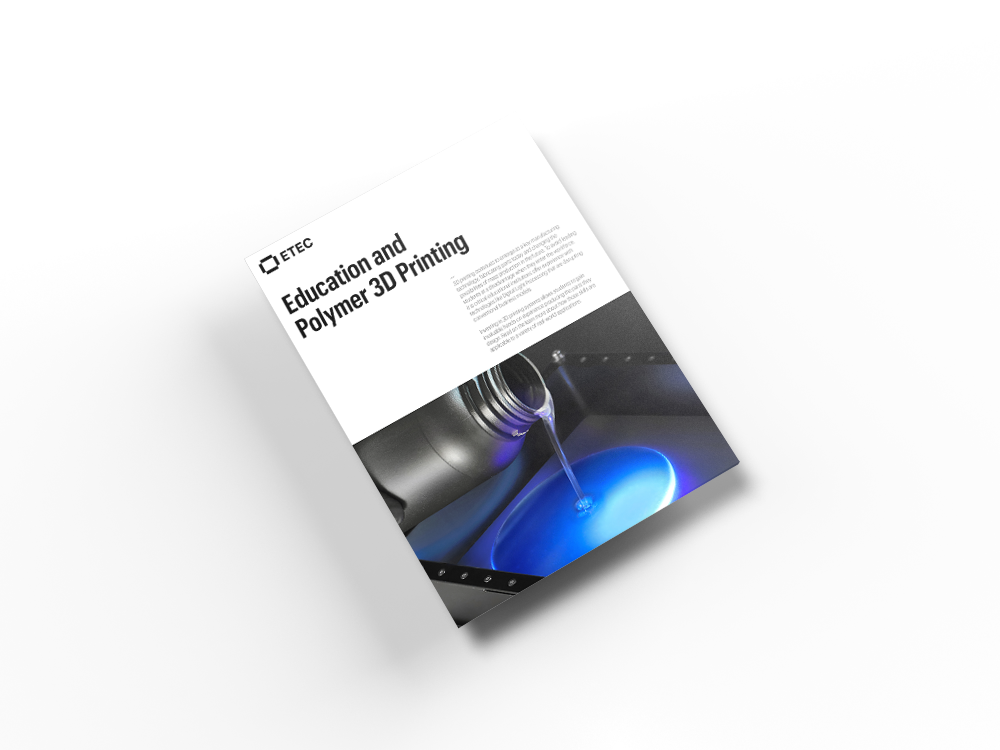3D printing continues to emerge as a key manufacturing technology, fabricating parts today and changing the possibilities of mass production in the future. To avoid leading students at a disadvantage when they enter the workforce, it is critical educational institutions offer experience with technologies like Digital Light Processing that are disrupting conventional business models.
Investing in 3D printing systems allows students to gain invaluable hands-on experience producing the parts they design.

An increasing number of industries are working with additive manufacturing technologies to innovate and optimize.
Traditional manufacturing methods, such as casting or injection molding, require hard tooling that comes with long lead times and high investment cost to produce. Iterations or design changes also become impractical because of conventional tooling and design for manufacturability often outweighs performance optimizations that create complexity.
Yet digital technologies are enabling groundbreaking new designs that optimize performance and upending business models built on recouping tooling investments. Graduates without experience working with these cutting-edge disruptive technologies enter the workforce at a disadvantage.
For more information on how we protect your privacy, please review our Privacy Policy.
© 2026 ENVISIONTEC US LLC. All rights reserved.